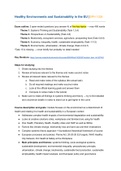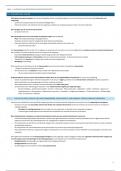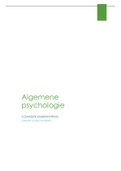Samenvatting
Healthy Environments and Sustainability in the EU Summary (ALL TASKS, KEY READINGS, LECTURES)
- Instelling
- Maastricht University (UM)
This summary is designed for exam preparation and divided into 5 themes (the exam has 5 long-response questions). All tasks (1-12) are summarised, with official learning goals, problem statement and key words. All key readings and additional readings are summarised. Also lectures relevant to the ex...
[Meer zien]






